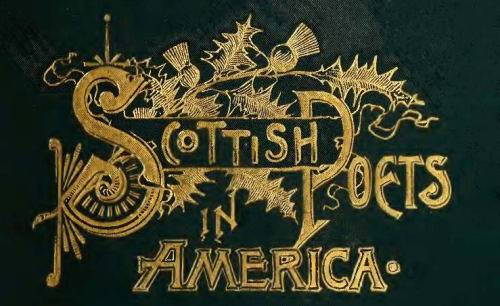|

Alastair McIntyre of the website, Electric
Scotland writes:
"It always amazes me how many of our notable
Scots were so good at languages. I'm not sure where they got this talent
from."
In 1889, an Englishman named Hamerton in his book, 'French and English',
writes on page 437:
"In proportion to their numbers they (Scots) are
the most distinguished little people since the days of the ancient
Athenians, and the most educated of the modern races." Indeed a writer of
the history of Glasgow in 1817 states, "The attention that has been paid to
the education of the lower orders of the Scottish nation has been proverbial
over Europe for several centuries past."
It can be argued, as James Scotland does in his 1969 book, 'The History of
Scottish Education', that education is first and foremost the training of
people to be literate, and that this involves their studious reading of
numerous learned documents in many different languages that have been handed
down the ages in writing; for Scots this means, from the time of St
Columba's landing on Iona in 563.
Mr Scotland also claims that the main influences on the promotion of
literacy as education were 'pietism', 'poverty', and 'relations with England
and Europe', and that Scots have 'always remained firmly, and even
superstitiously devoted to the concept of education.' Scotland was the first
country in Europe to take political action when it passed an education act
in 1496. Not only were schools placed in every parish by government, but
also the churches, many charitable societies, and private individuals
provided financial resources to faciliate their building and operation.
Saunders in his book, 'Scottish Democracy' page 308, notes:
"Not only was there a willingness to provide
places; there was an eagerness to take them up. The 'lad o' pairts' whose
parents made grinding sacrifices to give him his chance, and who would
trudge miles daily through all weathers to attend school or university has
always been a focus of popular sentiment and pride."
One has only to glance at synopses of the biographies of celebrated authors
and poets from early times up to the early twentieth century, to note how
the vast majority of them received early school training in literacy, even
if some did not always express great admiration for its efficiency and
immediate effectiveness.
The book, 'Scottish Poets In America', provides examples of the foregoing
claim.
John Henderson
Ainslie, Hew
Crerar, Duncan MacGregor
Crichton, James D.
Harper, Dr. John M.
Henderson, Daniel Mclntyre
Kennedy, James
Latto, Thomas C.
Lyle, William
MacColl, Evan
McCallum, Major-Gen. Donald Craig
M'Lachlan, Alexander
McLean, Andrew
Massie, Dr. John
Moffat, Prof. James C.
Murray, William
Patterson, John
Ramsay, Donald
Sturoc, Hon. William Cant
Taylor, Malcolm, Jr.
Telford, William
Wanless, Andrew
Whittet, Robert
Wilson, William
Wingfield, Alexander
Wood, William MacDonald |

